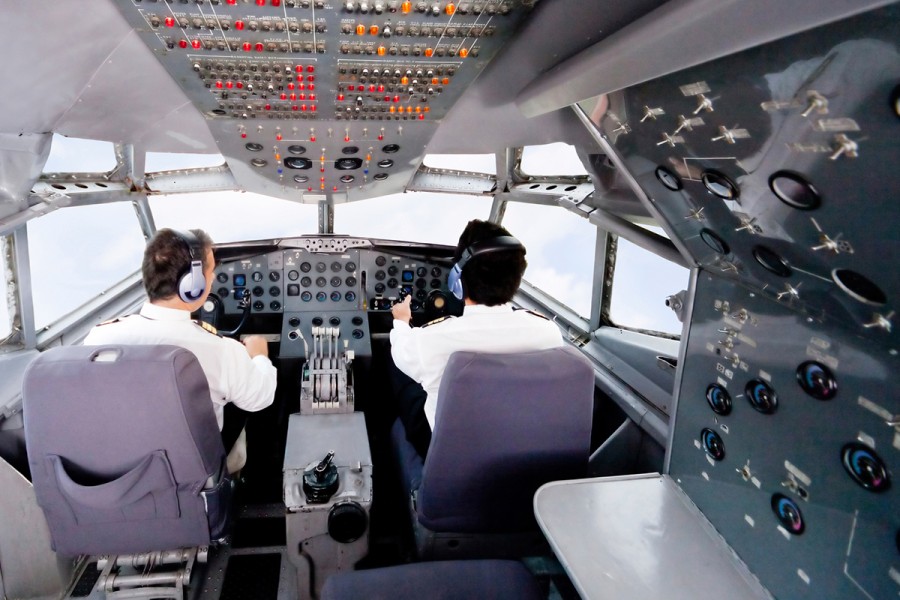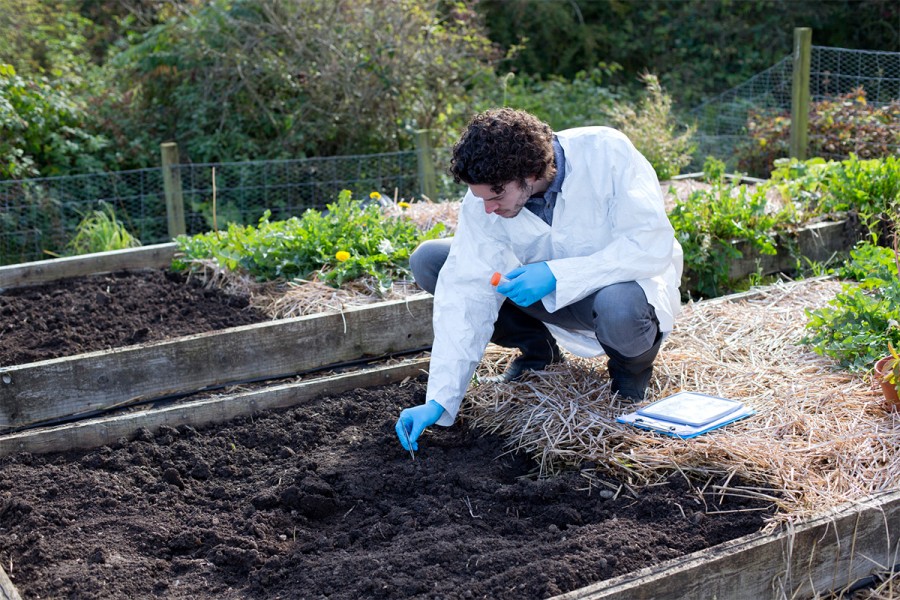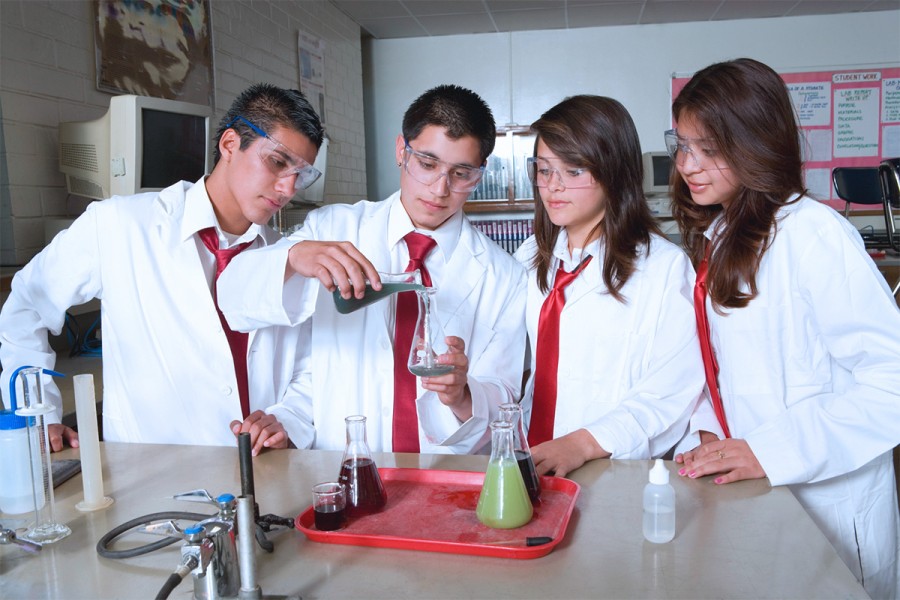Science – classroom activities
Ideas on how to relate science teaching to future careers and life beyond school.
What's on this page?
- Activities for Year 7 upwards
- Activities for Year 11 upwards
- Activities for all ages
- School-wide activities
- Classroom discussion points
- Planning questions
- Teacher reflection questions
- Linking career education to the science curriculum
- careers.govt.nz website links
- External website links
- Industry information
In science, students explore how the natural physical world and science work.
By building career-related activities into your curriculum area you are helping your students to develop the understandings, skills and attributes that they need to make positive career decisions throughout their lives.
Activities for Year 7 upwards
- Display the Where to? posters for your subject area. You can download these below.
- Set homework activities that include using careers.govt.nz to research science-related occupations.
- Allow students time to write in their learning and career plans about the skills they are learning in their subject.
- Encourage students to think about how scientists work together by asking questions about how they would do this, giving examples, and perhaps following up with information on sciences jobs from this website.
- Create discussion about the skills and abilities required for a range of science-related occupations.
- Encourage students to use the internet to research their role models’ career paths.
Use this website to find a number of science-related occupations for your class. Ask students to each pick one occupation and then research it by:
- interviewing someone they know who has studied science, and finding out about their career path
- finding information on the internet
- asking family/whānau if they know a person in the occupation who would be willing to talk about their work
- texting CAREER to 434 to get a career information pack posted to them
- using newspaper and magazine articles in the library.
Activities for Year 11 upwards
- Encourage discussion about occupations that focus on hydrology, weather patterns and rock formations.
- Ask students why they have chosen this subject, what skills they bring to it, and what skills they will develop. Then discuss how these skills and interests can be transferred to the outside world.
- Encourage students considering STAR or Gateway to select courses or work experience that match their skills and experience.
- Help students to develop people skills by encouraging them to become mentors for junior students. Get students to identify the skills they will be developing by doing this, and what occupations require these skills.
- Set homework activities involving the students interviewing people in science jobs.
- Encourage students to record their skills and achievements in their CVs using the CV Builder tool on this website.
Activities for all ages
- Ask students to interview someone about the impact of particular scientific developments on their work practices (eg, the impact of genetic testing on police work), or about how science informs their daily work (eg a vet, doctor, council environment officer, or waste water treatment worker).
- Visit a workplace to observe the manufacture of selected materials and take note of the different types of work involved.
- Ask students to research occupations that require the use of particular chemicals or materials. For example, they could interview a horticulturist about how an understanding of ecology and chemicals affects their methods of pest and disease control.
- Ask students to investigate the impact of particular scientific developments on employment and business opportunities (eg, the creation of new industries due to the Space Shuttle Program).
- When developing research topics, try to include careers content. For example, research 10 science-related occupations that would be involved with the next Rugby World Cup.
- Discuss the impact of natural events on employment. Build scenarios based on events such as the Napier earthquake.
- Investigate how research and development can enhance a company’s profits. Look for case studies of organisations such as 3M.
- Create a careers corner in your classroom. This could feature subject/occupation-related posters, tertiary posters, magazines and books that are related to maths and statistics, and newspaper articles.
- When doing out-of-classroom activities try to link careers content to each activity. For example, when visiting a work setting, have a set of questions students can ask about occupations and career pathways.
- Make the most of your students’ favourite medium. For example, create an exercise involving mobile learning. Ask students to text someone about something that is relevant to what they are doing in class. (For example, they might text a family member about the results of science investigations they've done.) This could also be an inter-class texting session. Ask students to text another student identifying three skills the latter has in your subject area.
- Encourage students to text or email Careers New Zealand and ask for information on a particular industry, occupation or course of study.
- Make the most of tertiary trips. Ask students to keep a diary of their visit and present back to the rest of the class.
- Create debate topics related to the science industry. For example, is genetic engineering ethical?
- Access video content on science careers from websites such as YouTube.
School-wide activities
A wide range of activities will take place in your school during the year. Consider how you can incorporate career education into them. Event examples are:
- sports events
- school fundraising
- meal times at the school canteen
- sports events involving visits from other schools
- community events
- Matariki
- kapa haka
- careers expos.
Classroom discussion points
Take five minutes at the end of a lesson to have a discussion about careers, or set homework on a careers topic. Questions you could ask include:
- Which jobs can be related to science?
- How can the skills I am learning relate to job hunting?
- If I don’t want to work in the sciences, what other jobs can I think about?
- Who could you talk to if you wanted to find out about becoming a...?
- Why is a zoologist similar to an electrician? (You can use other occupation combinations.)
- What impact has science had on society, the economy, the way we use our leisure time, and employment or unemployment?
Planning questions
- What occupations link to my subject? Do I know anyone involved in these occupations who I could invite to visit students as part of my teaching programme?
- What research topics could my students cover that would help them explore science-related careers?
- What mediums can I use? What resources are out there for me?
- Can I link what I’m doing with other curriculum subjects? Who would I need to discuss this with?
- How can I make the most of my school’s careers adviser?
- How can I make sure that I am being inclusive of Māori and Pacific world views?
Teacher reflection questions
- Do I know what my students’ career aspirations are?
- Do I have an up-to-date understanding of the importance and use of the skills I teach in science in the workplace? If not, how could I brush up on that knowledge?
- Do I have support from senior management? How can I get this?
- What combination of subjects are my students taking? What is their rationale for this? How can I better help my Year 10 students during subject choice time?
- Am I encouraging students to reflect on the relevance of their learning to their options after they leave school?
- Have my students set clear goals? What other skills do they need to develop on top of science for them to achieve their goals?
- How can I make the most of school events such as parent evenings?
- Do I communicate with parents and caregivers the relevance of my subject area to their children’s career goals?
- How can I incorporate The Real Game into my planning along with other teachers?
Linking career education to the science curriculum
Here are some of the objectives from the science curriculum that can be related to career education.
Level 4
Planet Earth and beyond
Earth systems – develop an understanding that water, air, rocks and soil, and life forms make up our planet and recognize that these are also Earth’s resources.
Level 5
Physical world
Physical inquiry and physics concepts – identify and describe the patterns associated with physical phenomena found in simple everyday situations involving movement, forces, electricity and magnetism, light, sound waves, and heat. For example, identify and describe energy changes and conservation of energy, simple electrical circuits, and the effect of contact and non-contact on the motion of objects.
Level 6
Material world
Chemistry and society – investigate how chemical knowledge is used in technological application of chemistry.
Level 8
Living world
Life processes – relate key structural features and functions to the life processes of plants, animals and micro-organisms and investigate environmental factors that affect these processes.
careers.govt.nz website links
Find out more about these science-related industries:
External website links
Science careers
- Engineering New Zealand website - careers in technology, engineering and science
- Science Learning website - video clips and stories of people working in science occupations
- Te Kete Ipurangi website - Science Online
- American Museum of Natural History website - working in the "ologies"
- Royal Society of NZ website - science resources to use in schools
Industry information
- AgResearch website - profiling the use of biotechnology in the agriculture industry
- Primary ITO website - seafood careers and training information
- Primary ITO website - information on apprenticeships
- Plastics NZ website - education ideas for the classroom about plastics manufacturing
- Te Pūkenga website - careers in electricity supply
- NZ Institute of Food Science and Technology website - classroom activities that look at working in the food technology industry
- NZ Veterinary Association website - information on careers
- Competenz website - classroom resources for teaching engineering and manufacturing-related topics
- Pharmaceutical Society of NZ website - information about careers in pharmacy
Updated 16 Jul 2024


